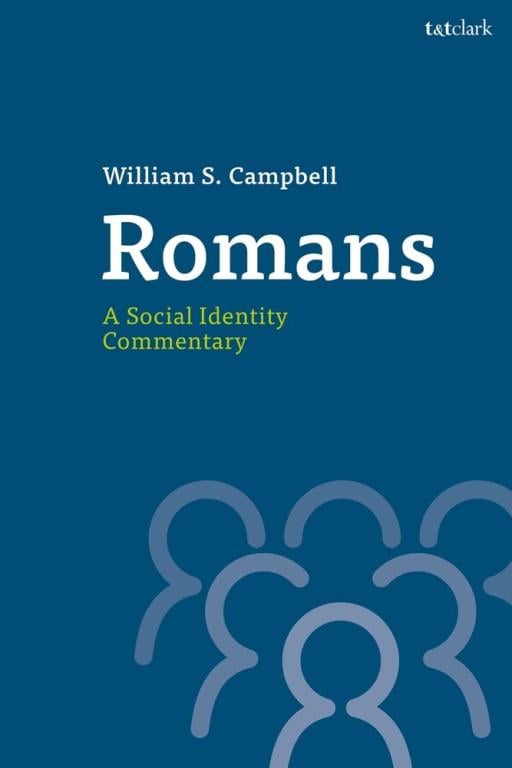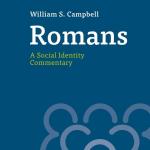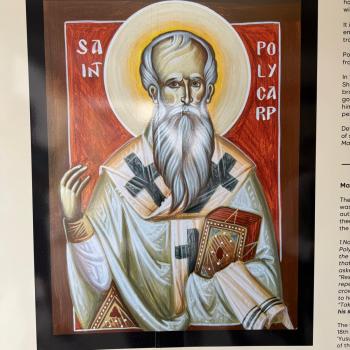Q. One of the benefits I have found with getting students on board with SIT is that it helps them understand that late Western cultures are not like ancient cultures in that radical individualism even to the point of narcissism characterizes late Western culture as opposed to the emphasis on group identity being primary in antiquity. I remember my own surprise when I first started studying the Greek NT and came to the verse ‘work out your salvation with fear and trembling’ and discovered it was you plural or as we would say in the South ‘ya’ll’! Paul was not talking about individuals working out their ‘personal’ salvation but about the community doing that together because the Spirit was working in the community to will and to do. This seems so counter-cultural to our own culture where we have universities that proudly advertise themselves having ‘an accent on the individual’ or ‘a curriculum shaped for each individual needs and wants’. I suspect that it is precisely the rise of radical individualism in the context of Protestantism that is a major cause of churches dividing again and again, into more than 450 different denominations! So much for the unity of the body of Christ. But how do we best get our students and churches to understand this concept of social identity, especially when individualism is being preached everywhere— do your own thing?
A. I would like strongly to affirm your stress upon the New Testament emphasis upon ‘you’ plural. It is a weakness in the English language that we have stopped using ‘thou’ to distinguish the singular from the plural ‘you’. Paul for example is almost always using the ‘you plural’ because he does not often isolate individuals from the rest of their community, being usually inclusive, thereby stressing the unity and solidarity of the group in Christ. Taking the Greek original seriously, we can alert students to the communal dimension of Paul’s teaching throughout. This communal dimension of course is relevant for individuals, but individuals can only flourish in community with others.
This obligates us to an awareness of the spiritual influence of home, parents, grandparents, Christian friends, churches, even external influences such as great stories of heroic figures. We need to nourish thankfulness for all that is given to us from the very beginnings of our lives. We need to keep a record -to take account of all good and beautiful things – to remember how we came to be the individual or group that we have now become. (When we check our development, we become more self -conscious of our own growth and more able to acknowledge and recognize it as not just our own activity but as also due to the good influence of others.) But most of all it reminds us that we are what we are not just by our perseverance but by the grace of God. Christian life, even for the individual as well as in the group, is always a mixture of both personal and communal elements. I would like to illustrate this with an example from my own experience.
As a young person myself, teaching young people mainly from Christian parents, in Sunday-school I was surprised when, after weekly discussion for about a year how seemingly easily and almost effortlessly some of these claimed the Christian faith as their own. In expressing for perhaps the first time their own consent to the Christian way, they discovered and acknowledged their own inner convictions about which previously they had not been fully conscious. To my mind the personal expression of their views crystallized the inner trust they had grown up in, but it was not just an automatic reaction, it needed the personal reflection and expression for its full development. Coming to conscious personal commitment and simultaneously to recognize one’s indebtedness to parents, friends, churches etc does not mean to have no personal autonomy, but these influences can be acknowledged as both a gift from others and yet claimed as one’s own-the personal and the communal need not be viewed as in opposition but rather as complementary, both contributing to a desired end.
The Protestant denomination to which I belong (Presbyterian) rightly stresses personal responsibility and thus its members are always non-conformists in refusing to follow leaders like sheep, our voice needs must be communally audible – we need both to make personal decisions and be involved in communal decisions. But that need not mean always doing everything differently- when we want to promote a particular solution to a community problem, we call on our friends to join in, we muster all the support we can get, because we know there is power in common group action. So there need be no real conflict between being in conscious charge of your own life and also being a member of a democratic group so long as you exercise your freedom to contribute to the direction of the group. In fact, we need to work together both as individuals and communities just to make our witness effective and our society more supportive.













